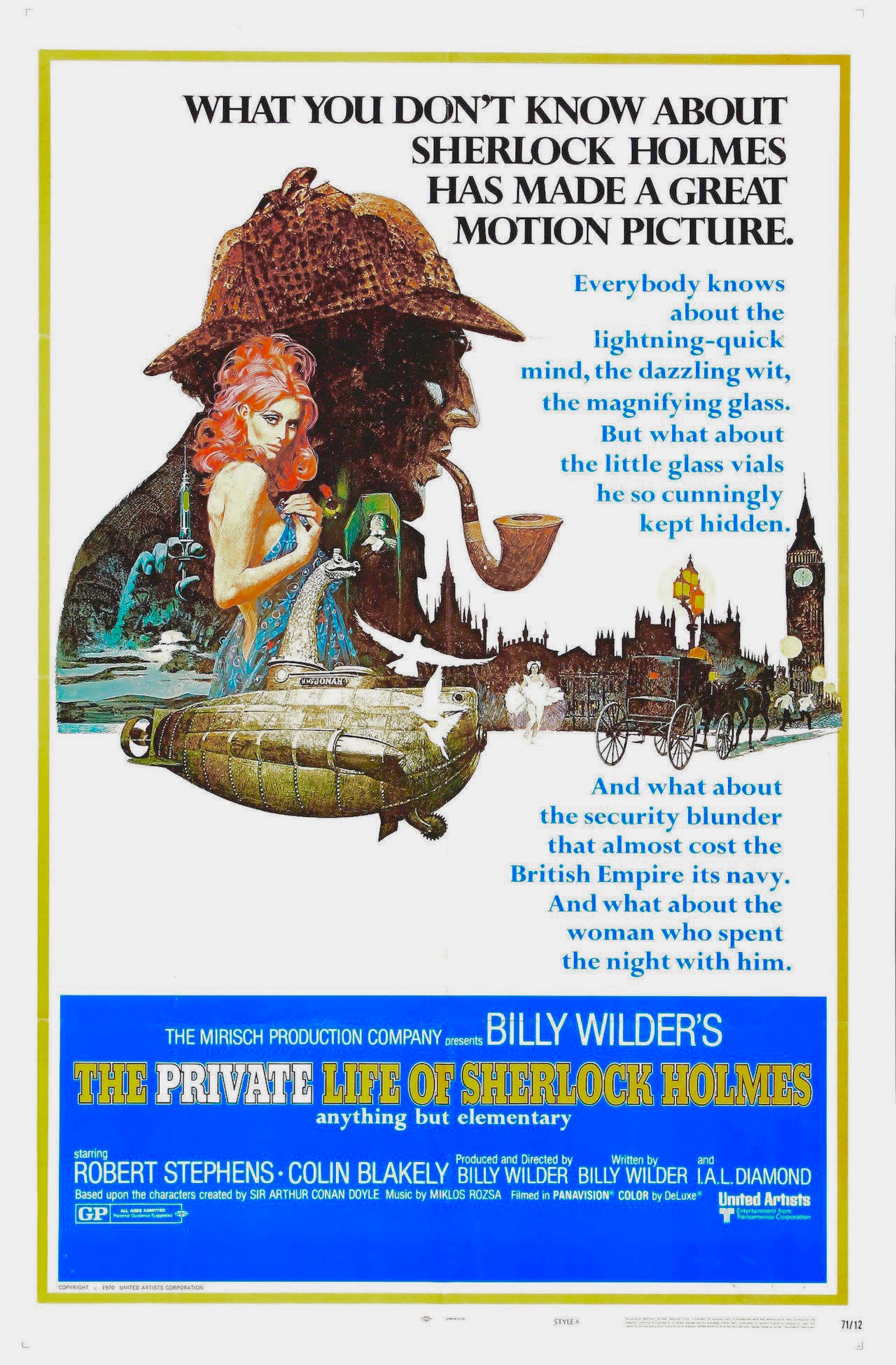Film Review: The Private Life of Sherlock Holmes (1970)



When the central mystery of The Private Life of Sherlock Holmes is finally revealed, I must admit it’s a bit of a letdown. But, the journey, the clues, and the build-up are all worthy of the mighty Holmes legend, and of Billy Wilder’s immaculate filmography. As a strict Sherlock Holmes yarn, it may not live up to the intricate canon of Arthur Conan Doyle, but that doesn’t mean there isn’t anything to grab onto. Quite the opposite, in fact. Wilder – and frequent writing partner I.A.L. Diamond – may have lost some luster on the mystery, but made up for it with plenty of open secret nods to Holmes’ drug use and sexuality.

Wilder and Diamond – who were known for their whip-smart dialogue and tight pacing – turn in a very good script by most standards. It gets away from them ever so slightly in the pacing department but the dialogue is still top-notch – albeit drier and more “British.” The exchanges between the consistently flummoxed Watson (Colin Blakely) and the ever-annoyed Holmes (Robert Stephens) are hilarious exercises in timing and acting choices.

Holmes repeatedly infers that he is a homosexual (sometimes stating it outright), only to walk it back slightly, just before referencing it again. Watson’s head is on a near-constant swivel as he tries to figure out for himself if what his partner says is true or simply misleading. We never find out for sure, but Wilder’s statements after the film’s release that he “should have been more daring” about Holmes’ sexuality would imply that he was originally written as a gay character.

In addition, Holme’s drug use is treated as more than a mere eccentricity but as the potential danger that we now know it to be. Perhaps in 1887, when the film takes place, injecting cocaine was seen as a simple recreation, but Wilder and Diamond have depicted it as an attempt at addictive escapism – something Holmes does while depressed. And while Watson – a medical doctor – vocally disproves of its use, he relents when Holmes goes down that path. Watson likely understands the addictive properties of cocaine better than Holmes, and chooses, instead of forcing him off of it cold turkey, to limit its use and dilute its potency. Watson, in many ways, is an enabler – even if he’s only trying to help.

None of this is to say that The Private Life of Sherlock Holmes is a depressing or dour film. It isn’t. These elements exist as thought-provokers but are ultimately used for character development and laughs – and to great success. Stephens’ portrayal of Holmes is full of wit and reserve but with just the right amount of condescension and superiority, while Blakeley’s Watson stays perfectly loyal while managing both endless fascinations and annoyances with his companion. They are a good team. I’d like to have seen them as the crime-solving duo in more films.

Even with the out-of-place opening sequence (something about the opening of an old trunk 50 years after Watson’s death) and the lackluster climax, The Private Life of Sherlock Holmes is an enjoyable film with its heart in the right place. It may seem dated or old-fashioned by today’s standards, but the laughs still work and the mystery is odd enough to keep the average viewer interested, even if the payoff isn’t there. It may not be the best film Wilder and Diamond ever wrote, but when you compare it to other writer’s who are having scripts green-lit – then, and especially now – it’s easy to see why they were a legendary team well worth discussing.
